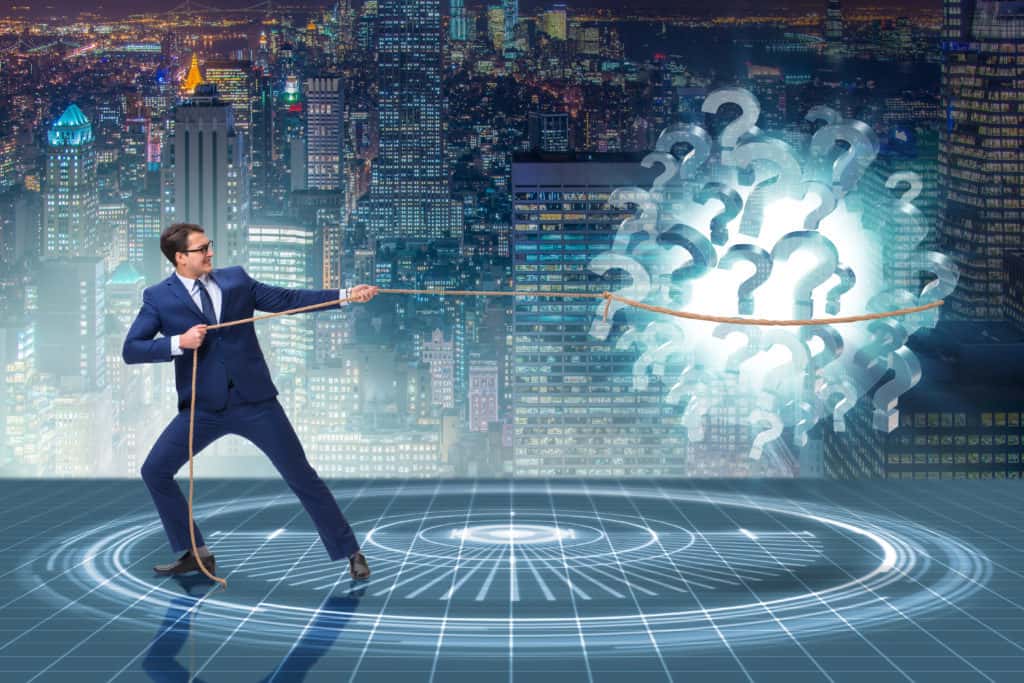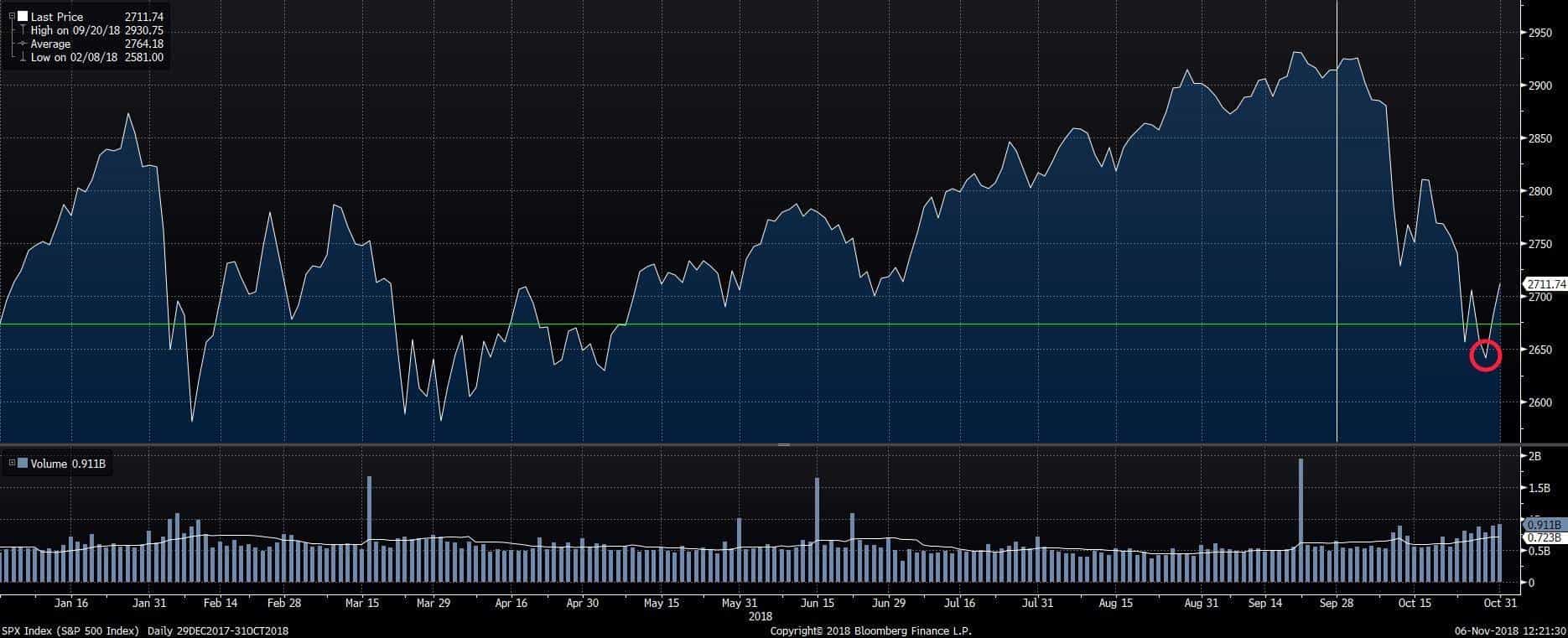

By Alex Pollak, CIO Loftus Peak
Key Takeaways:
- Historically, many big crashes took place in October and this October followed the script – at one point the S&P 500 was down 9.3% .
- Short-term thinking has triggered a sell-off of some of the best companies in the market.
- Short-term volatility is is unnerving, but it doesn’t alter the end result – significant secular themes (data and machine learning, energy as a technology not a fuel) are challenging the status quo.
- To invest in some of the best companies in the world, see the Loftus Peak Global Disruption Fund
October can be a bad month for investors. Statistically, it isn’t, but a lot of big crashes have happened in October (1929, 1987, GFC) which makes people worry. Part of the psychology of this is that folks know that every so often it has been catastrophic, and so it becomes the month where all the bad stuff finds its voice. There may have also been some uncertainty about the midterms, where votes are being counted as we speak.
But this October was bad. The financial doomsday preppers sold off high growth stocks, lifting their cash holdings as the market fell. At a point the S&P 500 was down 9.3% for the month of October before recovering and closing down 6.9%. The Wall St Journal reported today that “stock funds fell an average of 7.9% — wiping out all year-to-date gains. 0.0%… is the average return, according to Thomson Reuters Lipper data, for all U.S.-stock mutual funds and exchange-traded funds this year through Oct. 31. It was a brutal month.”
The S&P 500 Index erased the year’s gains gains at two points in October
Global investors threw out some of the best companies in the market
Companies which are set to play a significant role in the way business runs for decades – for example Nvidia, one of our single best investments over the past three years, and a company which is re-writing the rules for how companies interact with customers. Nvidia closed at US$210 on 31 October, a fall of 25% in 31 days. It had been as low as US$176.
Nvidia provides some of most critical hardware which is powering machine learning – used to tag photos in Facebook, auto-complete Google searches, enable driver-assist such as lane change warnings in new cars, as well as run Alexa voice searches and chat-bots.
The prevailing thinking is that high growth names, including this one, were overvalued, and in truth there is something to be said for this – stocks can always be cheaper, depending on how you measure them.
A significant part of what we do as investors is aimed at understanding the value of a company not in the next 2-6 quarters (where most analysis is focused) but in the years beyond this. We do not see any scenario in which machine learning tools become less important or the end market it serves doesn’t drastically expand, and we use this knowledge to help scale the company’s metrics and decide if it is an opportunity to invest.
Contrast this to the oil industry
Mohammed bin Sultan, (or MBS as he is known) is the Saudi prince embroiled in the nastiness about the murder of Jamal Khasshoggi. He has a day job – CEO of Aramco, the largest oil company in the world, a company the reserves of which have never been quantified publicly, but which are at least 5 times the size of the next largest, Exxon.
As reported in the New Yorker recently, at a gathering of prominent venture capitalists at the Fairmont Hotel, in San Francisco earlier this year, MBS spoke bluntly about Saudi Arabia’s prospects. According to one attendee, he said, “In twenty years, oil goes to zero, and then renewables take over. I have twenty years to reorient my country and launch it into the future.”
The attendee is reported to have said, “My jaw was on the floor.”
This is big stuff. There would be no better informed group in the world than the Saudis on what is happening in oil, and what renewables mean for it (the problems for Oil are linked in with the internal combustion engine as we discuss here).
And what are they doing about it? The Saudis are the largest investors (US$45b) in Softbank’s US$100b Vision Fund, the world’s largest disruptive investment vehicle, run by Masayoshi Son, an early investor in Alibaba.
What is the Vision fund buying? It owns ARM, the processor chip architect for the Apple iPhone (every single version). Softbank believes that connected devices (not just people) are emerging as the global megatrend, so low power ARM mobile chips will have a major role to play. The Saudis plan to put another US$45b into a second vision fund, also US$100b, the details of which are still being finalised.
This isn’t to say that investors can’t make a return betting on oil companies – there has been a significant rally in the price this year, and plenty have done well.
But it seems like a hard game to play – judging political cross-currents with supply/demand forces overlaid by what Donald Trump tweeted this morning – all of these are factors in the oil price.
Back to October
Whilst the market continued to sell, we stuck to our investment process, remembering that no-one is going back to using a Gregory’s street directory to find the address of their party, or strapping on a cd player for the morning run, meaning that these technological and disruptive developments are not going away. Pricing such massive secular themes, which challenge the status quo, won’t be a smooth process. Market dislocation is to be expected, of which we took full advantage this time around, entering October with 11%+ in our cash holdings and finishing with 2%.
Share this Post


